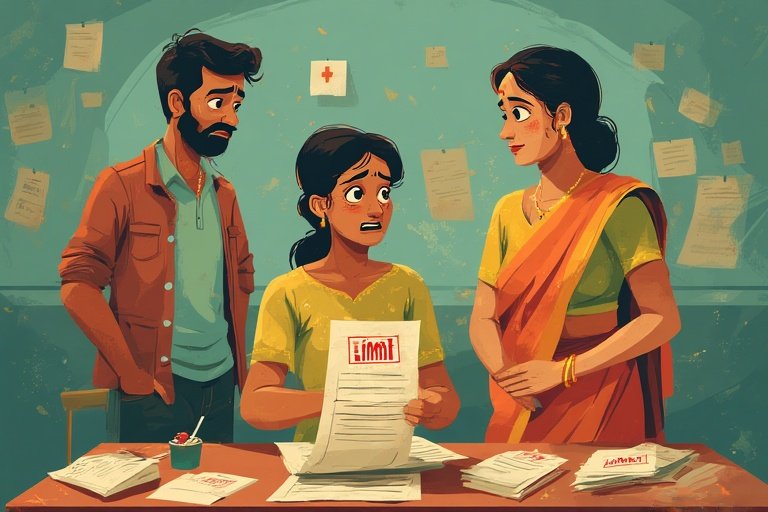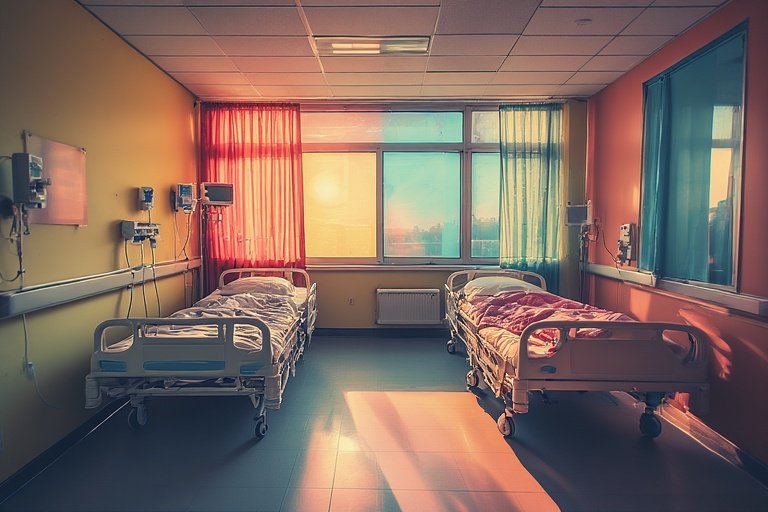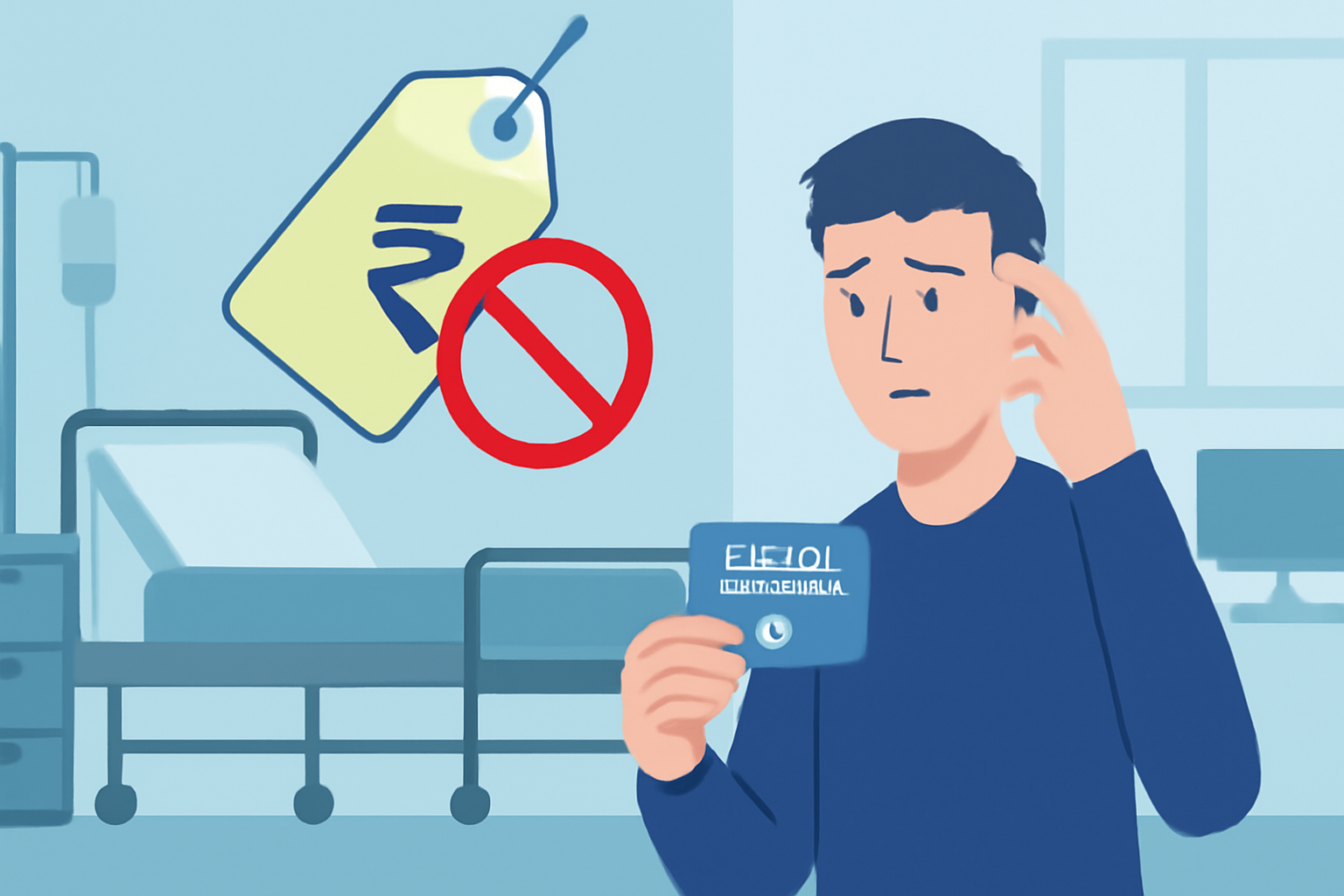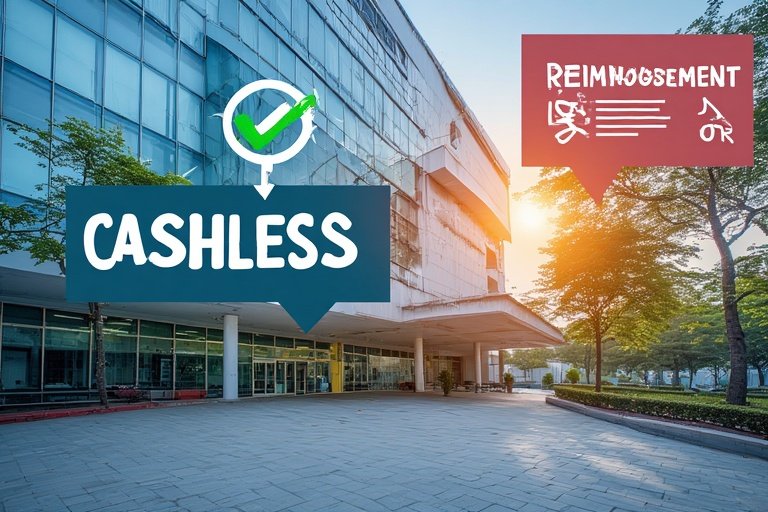When it comes to securing your health and financial future, choosing good health insurance in India is one of the most crucial decisions you can make. Whether you’re looking for health insurance plans for family or searching for the best health insurance plans in India, understanding the key components of a health insurance policy is vital to ensure you’re getting the best coverage for your needs.

1. Sub-Limits: Avoiding Coverage Restrictions
A sub-limit in a health insurance policy places a cap on the amount the insurer will pay for specific treatments or conditions. For example, even if your overall coverage is ₹10 lakh, you may have a sub-limit on specific treatments like cataract surgery or room rent. Ideally, your health insurance plan should have no sub-limits. Sub-limits can significantly reduce the value of your policy when needed the most. When choosing the best health insurance in India, make sure the policy doesn’t impose restrictions on specific conditions or treatments.

2. Room Rent Cap: Opt for Flexibility
A room rent cap restricts the maximum amount your insurer will reimburse for your room during hospitalisation. This cap could be a daily limit, and if your room cost exceeds that, you’ll need to pay the difference. Ideally, your health insurance policy should have no room rent cap. Policies that do not impose these caps provide flexibility and allow you to choose the type of room that suits your comfort and medical needs. When selecting a family health insurance plan, make sure room rent isn’t a limiting factor for all family members.

3. Co-Pay: Reducing Financial Burden
The co-pay clause in a health insurance policy means that you will be responsible for a certain percentage of your medical bills. For instance, if your family health insurance policy includes 20% co-payment, and your medical bill is ₹5 lakh, you will need to pay ₹1 lakh, and the insurer will cover ₹4 lakh. To ensure you don’t pay more than necessary, choose policies with low or no co-payments. This feature is particularly essential when looking for family health care insurance or health insurance for senior citizens, as medical costs can rise significantly in such cases.

4. Normal Waiting Period – 30 Days
Most health insurance policies include a normal waiting period of 30 days, meaning that for non-emergency treatments, you will have to wait for 30 days before filing a claim. However, accidents are generally covered immediately. While this waiting period is standard, it’s important to inquire about the waiting period for specific treatments. This is crucial when you’re purchasing a family medical insurance plan, especially if you need immediate coverage for emergencies.

5. Critical Illness Waiting Period – 90 Days
For policies that cover critical illnesses such as cancer, heart attacks, or strokes, 90 days is the usual waiting period before you can file a claim. Understanding the waiting period for critical illness coverage is essential when selecting the best health insurance plans in India. Always confirm with your insurer about which conditions are covered and how long the waiting period lasts.
6. Maternity Benefits Waiting Period – 9 to 36 Months
Maternity benefits are often included in family health insurance plans. However, these benefits typically come with a waiting period ranging from 9 to 36 months. If maternity coverage is important for you, make sure to check the exact waiting period and the scope of coverage with your insurance provider. This ensures that you’re fully aware of your options when planning for your family’s healthcare needs.
7. Waiting Period for Pre-Existing Diseases (3-4 Years)
If you have any pre-existing diseases, like diabetes or hypertension, be aware that many insurance policies will impose a waiting period of 3 to 4 years before you can claim coverage for those conditions. Always check the waiting period for pre-existing conditions when purchasing senior citizens health insurance or a health insurance plan for family. It’s essential to know when your existing health conditions will be covered under the policy.
8. Waiting Period for Slow-Growing Diseases (2 Years)
Certain slow-growing diseases, such as cataracts or hernia, may come with a waiting period of 2 years. These diseases typically require you to wait before you can claim coverage under your policy. This is especially important for those purchasing a family health insurance plan for children or seniors, as such diseases can become more common with age.
9. Restoration of Sum Assured: Maximizing Your Coverage
Restoration of sum assured refers to the reinstatement of your coverage amount after it’s exhausted.
- Condition 1: One-time restoration – Some policies restore the sum assured only once within a year.
- Condition 2: Cannot use restoration for the same illness – If you exhaust your coverage for one condition, the restoration benefit cannot be used for the same illness.
When selecting a senior citizens health insurance plan, ensure you understand how the restoration benefit works, especially for ongoing treatments or emergencies that may exceed the initial sum assured.

10. Zonal vs. Pan-India Coverage
Some policies provide zonal coverage, meaning that they are valid only in certain regions, while others offer pan-India coverage, covering all locations across the country. If you frequently travel or live in multiple cities, a pan-India health insurance plan is a better choice. When looking for the best health insurance company in India, ensure that the company offers nationwide coverage to avoid geographical limitations.

11. Exclusions: What’s Not Covered?
All health insurance policies have exclusions, which are specific treatments or conditions that are not covered. Common exclusions include cosmetic surgery, infertility treatments, and certain pre-existing conditions. Always ask your insurance provider for a list of exclusions to avoid surprises during claims. Knowing what’s excluded is crucial when selecting the best health insurance policy in India for you and your family.

12. Cashless + Reimbursement: Network and Non-Network Hospitals
Look for policies that offer both cashless and reimbursement options. Cashless claims are settled directly with network hospitals, while reimbursement claims are available for non-network hospitals. It’s important to ensure that both options are available in your family health insurance policy. This flexibility will give you peace of mind when seeking treatment in various hospitals, whether they are part of the network or not.

13. Daycare Treatments: Comprehensive Coverage
Daycare treatments are medical procedures that can be completed in one day, such as cataract surgery or dialysis. Many policies now cover these treatments, reducing your time in the hospital. When choosing a family medical insurance policy, make sure daycare treatments are included, as they are becoming increasingly common in healthcare.
14. Continuity of Coverage: Securing Long-Term Benefits
Continuity of coverage ensures that your health insurance policy remains valid without interruption, even as you age or change policies. Some insurers may stop providing coverage after a certain age or impose restrictions on older applicants. Always verify the continuity provisions before purchasing a health insurance plan, especially for senior citizens health insurance. This will ensure that your policy remains effective in the long run.

15. Super Top-Up: Boosting Your Coverage
A Super Top-Up policy increases your coverage beyond the original sum insured. For instance, if your base health insurance policy covers ₹10 lakh, adding a Super Top-Up policy for ₹30 lakh would give you a total coverage of ₹40 lakh. These policies are often cheaper than increasing your base coverage, but they come with a deductible limit, which means you need to pay a certain amount before the insurance kicks in. Always check the deductible amount when purchasing a Super Top-Up policy.
Conclusion
When searching for the best health insurance plans in India, understanding the various components of a policy is key to choosing the one that suits your needs. Whether you are looking for family health insurance, health insurance for senior citizens, or coverage for specific medical needs, ensure you consider factors like sub-limits, room rent caps, co-payments, waiting periods, and exclusions. Be sure to select a top health insurance company in India that provides flexibility, comprehensive coverage, and a transparent claims process.
By considering these essential features, you can confidently select the best health insurance plan for your family and secure your health and finances for the future. Make sure to do thorough research, compare plans, and consult with your insurance provider to ensure you’re getting the most out of your policy.

1 thought on “Don’t make 12 Mistakes before buying “Health Insurance””